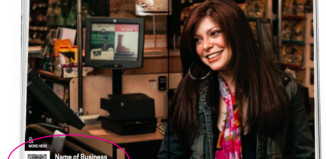Falling victim to the recession; losing your job and the pride that comes with work; not having your romantic interest in someone reciprocated or hearing your partner tell you he wants to end the relationship. These not uncommon experiences have the power to create shame, that chilling sense that in some way you have failed as a person. These experiences are also situation-specific. The situation can change; you get a better paying job after the layoff, you meet someone else after the breakup – and that feeling of failure can give way to a new sense of hope and confidence.
Shame, however, can also be experienced in a more general context. Take, for instance, the renewed debate within our federal government regarding the military’s current policy of “don’t ask, don’t tell.” the “don’t tell” piece of this policy is the most disturbing, the most toxic, for its hidden message is saturated with shame. Sadly, the “don’t tell” message pervades not only our military but our larger society as well. Through our state and federal governments, many religions and religious leaders, and maybe even our own families, we are told, “don’t tell.” don’t tell us your identity, because you will only break our morale. Don’t tell us who you love, because your relationships are immoral. Don’t tell us who you really are, because there is something inherently wrong with you. The hidden message is painfully clear: just be quiet or worse yet, just don’t be.
Unfortunately, our society is quite effective at shaming, what author Gershen Kaufman describes as an “impotent-making experience.” and in an effort to avoid feeling psychologically impotent, some engage in compulsive sex or develop addictions to drugs and alcohol. Others may strive for virility by trying to achieve that “perfect” body, only to find themselves developing severe body image disturbances and possibly an eating disorder. Still others may overcompensate and react with rage, the explosive side of shame, and become abusive in an attempt to reassert one’s power. Or some simply surrender and remain locked in the proverbial closet, hiding from their friends, family and even themselves. All of these are futile efforts at anesthetizing the feeling of inadequacy attached to shame and protecting one’s self-esteem and identity from further harm. These efforts also disrupt connections with self and others, the very connections that give one a sense of belonging, of community and of family.
As a therapist, I listen to people’s stories. There is something empowering and healing in storytelling, for it is a form of truth telling, and when we speak our truth, we authenticate ourselves. There are different ways to tell your truth. Some people choose to get involved politically and advocate for a more level playing field. Others enter into a life commitment with another person and may celebrate that relationship with a public ceremony. Some choose to become a parent and have a family of their own. There are those who choose to volunteer time and treasure helping those in our community who have fallen ill with HIV/AIDS. Joining a therapy group of others with similar struggles or just simply coming out of the cramped closet are also ways of telling your truth.
I remember a young man I used to work with who was in the process of coming out to his family. After disclosing to his parents that he was gay, he was peppered with the usual questions, but when the questioning ceased, he was met with a deafening silence. His newly revealed identity was never talked about again. After months of silence, he courageously confronted his parents on their behavior, telling them that their ignoring who he is was incredibly shaming and hurtful. His parents’ response? More silence. The last time I visited with my former colleague, his family was still neck deep in denial about his identity, what he jokingly calls the “new family secret.” Although it is painful to remember, he has a great sense of humor about it all, which helps him maintain a healthy perspective. What his parents have not and will not give him, validation of his true self, he has found in relationships with others in the community. Through his telling, he shared his secret, broke his silence and replaced his shame with a sense of pride in who he is and in the community to which he belongs.
With the “don’t tell” stance, society has attempted to hush the LGBT community, to shame gay men and women into silence. Historically and tragically, this has been a prevalent theme in the collective gay story, but it does not have to re- main that way. I believe that we have the power to create our own narratives, both as individuals and as a community, and this power is exercised in our telling. By telling, we break the silence of shame and claim our identity. By telling, we defy the myths that are projected onto our community. By telling, we empower ourselves and each other.
Telling is a form of embracing. And by embracing our common identity, our common cause and our common story, we take back our power and establish our rightful place at society’s table – something we can all be proud of.
Did You Know?
Studies show that prolonged shame can increase stress hormones and decrease levels of endorphins and dopamine, a chemical that is responsible for sexual arousal.
Research indicates that negative- self-related thoughts associated with shame can lead to a decrease in immunity and, in some cases, a faster progression of HIV infection.


































